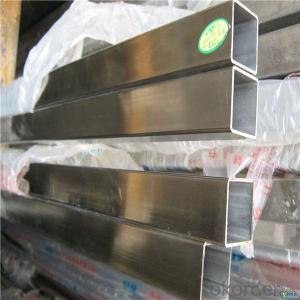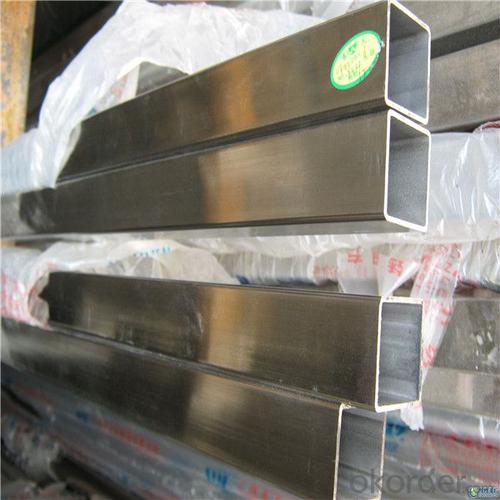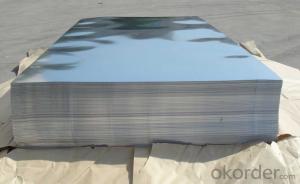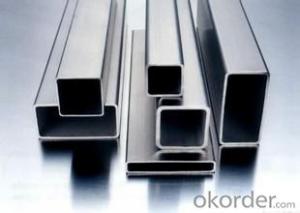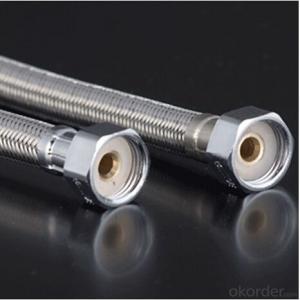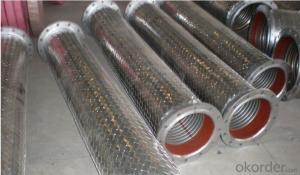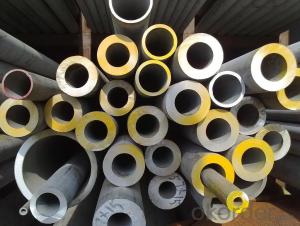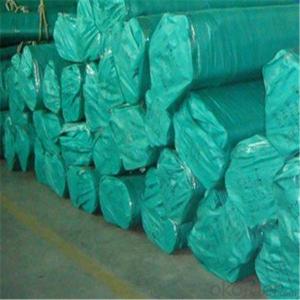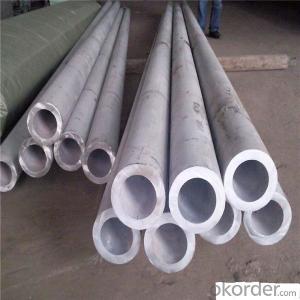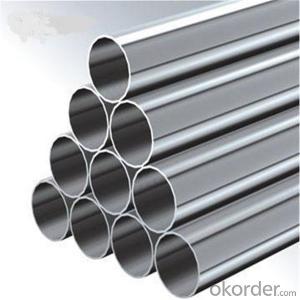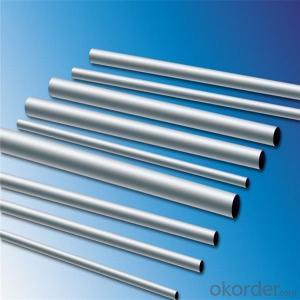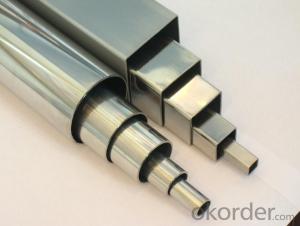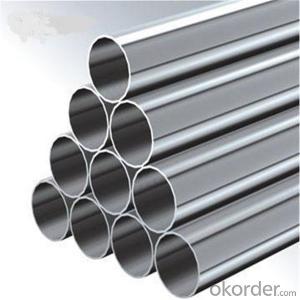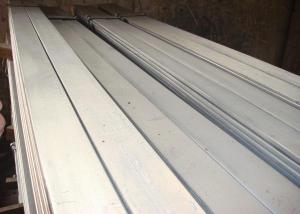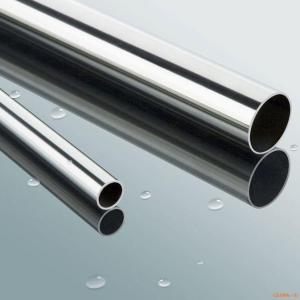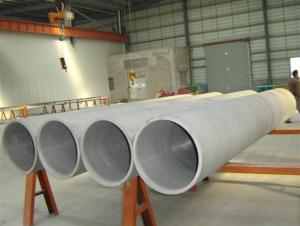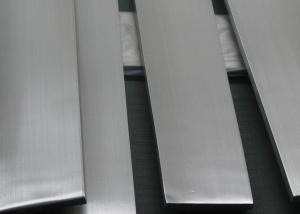Sch40 Stainless Steel Pipe TP304 316 316L in Wuxi ,China
- Loading Port:
- Shanghai
- Payment Terms:
- TT OR LC
- Min Order Qty:
- 2 m.t.
- Supply Capability:
- 25000 m.t./month
OKorder Service Pledge
OKorder Financial Service
You Might Also Like
Specification
316 stainless steel pipe
Product Description
Item | Sch40 stainless steel pipe TP304 316 316L |
Standard | ASTMA312,A213,A376,A789,A790,A376,A249, EN10217-7-2005,GB14976-2002,GB13296-2009, JIS G3459-2004,JIS3463-2006 |
Technique | cold rolled,hot rolled ,cold drawn |
Outside diameter | DN10-DN1200,3/8"-100",6-2500mm |
Wall thickness | SCH5-SCH160,XS,STD,XXS,0.5-150mm |
Length | 5.8m,6m,11.8m,12m,or as required |
Surface | Annealing,picking,polished,bright,hair line,brush,sand blast,stain finish,etc |
Price term | Ex-Work,FOB,CNF,CFR,CIF,FCA,DDP,DDU.etc |
Payment term | TT,L/C,western Union |
Export to | Ireland,Singapore,Indonesia,Ukraine,Saudi Arabia,Spain,Canada,USA,Brazil,Thailand, Malaysia,Chile,Korea,Iran,India,Egypt,Malaysia, Viet Nam,Oman,Dubai,Holland, Mexico,Peru,Italy,Russia,Nigeria,etc |
Package | Standard export package,suit for all kinds of transport, or as required |
Container Size | 20ft GP:5898mm(Length)x2352mm(Width)x2393mm(High),20-25 Metric ton 40ft GP:12032mm(Length)x2352mm(Width)x2393mm(High),20-25 Metric ton 40ft HC:12032mm(Length)x2352mm(Width)x2698mm(High),20-25 Metric ton |
Application | widely used in petroleum, foodstuff, chemical industry, construction,electric power, nuclear energy,biotechnology, machinery, paper making,shipbuilding,boiler fields etc |
Contact | If you have any question,please feel free to contact me . We are sure your inquiry or requirements will get prompt attention. |
Definition of stainless steel(Adopted form Wikipedia)
In metallurgy, stainless steel, also known as inox steel or inox from French "inoxydable",
is defined as a steelalloy with a minimum of 10.5% to 11% chromium content by mass.
Stainless steel does not readily corrode, rust or stain with water as ordinary steel does,
but despite the name it is not fully stain-proof, most notably under low oxygen, high salinity,
or poor circulation environments. It is also called corrosion-resistant steel or CRES
when the alloy type and grade are not detailed, particularly in the aviation industry.
There are different grades and surface finishes of stainless steel to suit the environment
the alloy must endure. Stainless steel is used where both the properties of steel
and resistance to corrosion are required.
Surface Finish :
Surface finish | Characteristics and application |
No.2B | The surface brightness and flatness of no2B is better than no2D. then through a special surface treatment to improve its mechanical properties, No2B could nearly satisfy comprehensive uses. |
No.3 | Polished with abrasive belt of git#100-#200, have better brightness with discontinuous coarse stria, used as inner and external ornaments for building, electrical appliances and kitchen utensils etc. |
No.4 | Polished with abrasive belt of grit #150-#180,have better brightness with discontinuous coarse stria, but thinner than No3, are used as bathtub buildings inner and external ornaments electrical appliances kitchen utensils and food processing equipment etc. |
HL | Polished with abrasive belt of grit #150-#320 on the NO.4 finish and has continuous streaks, mainly used as buildings ornaments elevators, door of building, frontal plate etc. |
BA | Cold rolled, bright annealed and skin-passed, the product have excellent brightness and good reflexivity like mirror, kitchen apparatus, ornament etc. |
8K | The product have excellent brightness and prefer reflexivity can to be the mirror. |
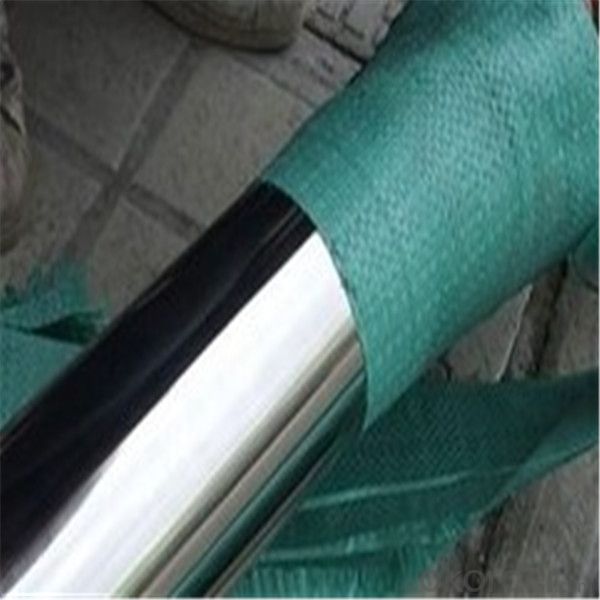
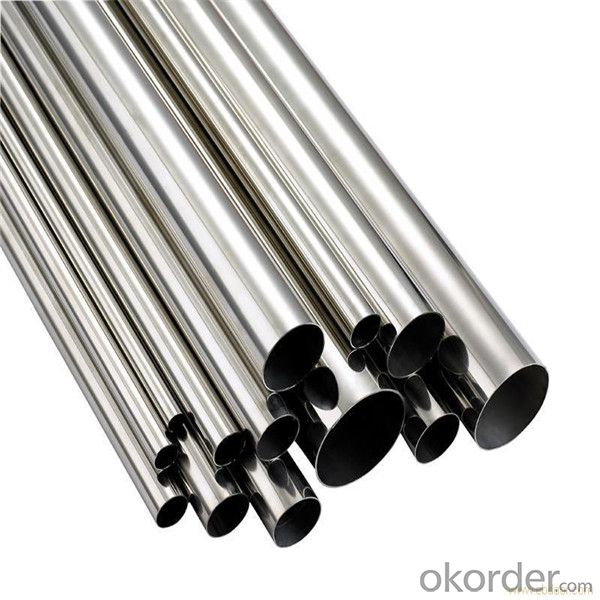
- Q: What is the maximum pressure stainless steel pipes can handle?
- The maximum pressure that stainless steel pipes can handle varies depending on the grade and thickness of the stainless steel, as well as the specific application and conditions. However, stainless steel pipes are generally known for their high strength and durability, allowing them to withstand high pressures. It is advisable to consult with a professional engineer or refer to industry standards and guidelines to determine the specific maximum pressure rating for a given stainless steel pipe.
- Q: What brand of stainless steel pipe cutting machine is good?
- Stainless steel cutting pipe should take into account the cutting speed, accuracy, cross section flatness, surface scratches, cutting tool loss and so on
- Q: Are stainless steel pipes resistant to hydrogen embrittlement?
- Yes, stainless steel pipes are generally resistant to hydrogen embrittlement. This is due to their high corrosion resistance and the presence of alloying elements that help mitigate the effects of hydrogen on the material's mechanical properties.
- Q: Are stainless steel pipes suitable for offshore platforms?
- Yes, stainless steel pipes are suitable for offshore platforms. Stainless steel is a corrosion-resistant material that can withstand the harsh marine environment, including exposure to seawater, salt, and other corrosive agents. It offers excellent resistance to oxidation and pitting, which are common issues in offshore environments. Stainless steel pipes are widely used in offshore platforms for various applications, such as transporting fluids and gases, structural supports, and as protective barriers. They are known for their high strength, durability, and reliability, which are crucial factors in offshore operations where safety is of utmost importance. Furthermore, stainless steel pipes have low maintenance requirements, reducing the need for frequent inspections and repairs. This is particularly advantageous in offshore settings where accessibility and maintenance can be challenging due to remote locations and harsh weather conditions. In addition to its corrosion resistance, stainless steel also offers other desirable properties such as heat resistance, fire resistance, and excellent mechanical properties. These characteristics make stainless steel pipes an ideal choice for offshore platforms, where they can be exposed to high temperatures, fire hazards, and mechanical stress. Overall, stainless steel pipes provide a cost-effective and long-lasting solution for offshore platforms, ensuring the safety, reliability, and efficiency of operations in these challenging environments.
- Q: Are stainless steel pipes suitable for fire protection systems?
- Indeed, fire protection systems find stainless steel pipes to be a suitable option. The reason lies in the fact that stainless steel possesses remarkable resistance against corrosion, a trait of utmost importance for fire protection systems, which frequently encounter water or other corrosive substances. The ability of stainless steel pipes to endure high temperatures while preserving their structural integrity enhances their dependability for the transportation of water or other fire suppressants. Furthermore, the durability and extended lifespan of stainless steel pipes contribute to a decrease in the necessity for frequent replacements or repairs. All in all, stainless steel pipes are widely favored in fire protection systems due to their reliability, resistance to corrosion, and durability.
- Q: How do you calculate the pressure drop in stainless steel pipes?
- To calculate the pressure drop in stainless steel pipes, you would need to consider various factors such as the flow rate, pipe diameter, pipe length, and the properties of the fluid being transported. The pressure drop can be determined using the Darcy-Weisbach equation, which is commonly used for calculating pressure losses in pipe systems. The Darcy-Weisbach equation is as follows: ΔP = (f * (L/D) * (ρ * V^2))/2 Where: ΔP = Pressure drop (in units of force per unit area, such as psi or Pa) f = Darcy friction factor (depends on flow conditions and pipe roughness) L = Pipe length (in units of length, such as meters or feet) D = Pipe diameter (in units of length, such as meters or feet) ρ = Fluid density (in units of mass per unit volume, such as kg/m^3 or lb/ft^3) V = Fluid velocity (in units of length per unit time, such as m/s or ft/s) To calculate the pressure drop, you would need to determine the Darcy friction factor, which depends on the Reynolds number (Re) and the relative roughness of the pipe. The Reynolds number can be calculated using the following equation: Re = (ρ * V * D)/μ Where: μ = Fluid viscosity (in units of force per unit area per unit time, such as Pa·s or lb/ft·s) Once you have determined the Reynolds number, you can use empirical correlations or Moody's chart to find the Darcy friction factor for the given flow conditions. With the friction factor, pipe length, diameter, fluid density, and velocity, you can then calculate the pressure drop using the Darcy-Weisbach equation. It is important to note that the above equations provide an approximate calculation of pressure drop in stainless steel pipes. The accuracy of the calculation may depend on factors such as pipe roughness, fluid properties, and the flow regime. Additionally, it is recommended to consult relevant standards or engineering references for more detailed and accurate calculations.
- Q: What are the different types of fittings used with stainless steel pipes?
- There are several different types of fittings that can be used with stainless steel pipes, depending on the specific application and requirements. Some of the most common types include: 1. Compression fittings: These fittings are designed to create a leak-proof connection by compressing a ferrule onto the pipe. They are easy to install and can be used with both rigid and flexible stainless steel pipes. 2. Threaded fittings: Also known as screwed fittings, these fittings have female threads that allow them to be screwed onto the male threads of the pipe. They are commonly used in low-pressure applications and can be easily installed or removed. 3. Butt weld fittings: These fittings are used to create a permanent, welded connection between two stainless steel pipes. They require the pipes to be beveled to create a V-shaped groove and are typically used in high-pressure or high-temperature applications. 4. Flange fittings: Flanges are used to connect two stainless steel pipes or to connect a pipe to a valve, pump, or other equipment. They provide a strong and leak-proof connection and can be easily bolted or welded onto the pipe. 5. Push-to-connect fittings: These fittings are designed to provide a quick and easy connection without the need for tools or soldering. They use a push-in mechanism to secure the pipe and are commonly used in plumbing and air compression systems. 6. Camlock fittings: Camlock fittings are used to quickly connect or disconnect hoses and pipes. They have a lever or cam mechanism that locks the fitting into place, ensuring a secure connection. They are commonly used in industrial applications where frequent connections and disconnections are required. Overall, the choice of fitting will depend on factors such as the application, pressure requirements, and ease of installation. It is important to select the appropriate fitting to ensure a reliable and durable connection for stainless steel pipes.
- Q: What is the yield strength of stainless steel pipes?
- The yield strength of stainless steel pipes can vary depending on the specific grade of stainless steel used. However, most commonly used grades of stainless steel pipes have a yield strength ranging between 25,000 to 100,000 pounds per square inch (psi).
- Q: Can stainless steel pipes be insulated with rubber?
- Indeed, rubber insulation can be applied to stainless steel pipes. Employing rubber insulation is a prevalent technique for safeguarding and insulating diverse pipe varieties, encompassing stainless steel pipelines. With rubber insulation, numerous advantages manifest, such as thwarting heat loss or gain, minimizing condensation, and furnishing soundproofing attributes. Moreover, it demonstrates resistance against moisture, chemicals, and UV rays, thereby rendering it suitable for employment in both indoor and outdoor settings. Furthermore, rubber insulation installation and maintenance pose no challenge, thereby rendering it a cost-efficient selection for insulating stainless steel pipes.
- Q: What is the maximum diameter of stainless steel pipes available?
- The maximum diameter of stainless steel pipes can differ based on the manufacturer and supplier. Nevertheless, stainless steel pipes usually span from smaller sizes, like ½ inch or 1 inch, to larger sizes, such as 36 inches or beyond. It is crucial to acknowledge that obtaining bigger diameters might be restricted and necessitate special orders or customization. It is, therefore, recommended to consult specific manufacturers or suppliers to ascertain the maximum diameter they provide for stainless steel pipes.
Send your message to us
Sch40 Stainless Steel Pipe TP304 316 316L in Wuxi ,China
- Loading Port:
- Shanghai
- Payment Terms:
- TT OR LC
- Min Order Qty:
- 2 m.t.
- Supply Capability:
- 25000 m.t./month
OKorder Service Pledge
OKorder Financial Service
Similar products
Hot products
Hot Searches
Related keywords
